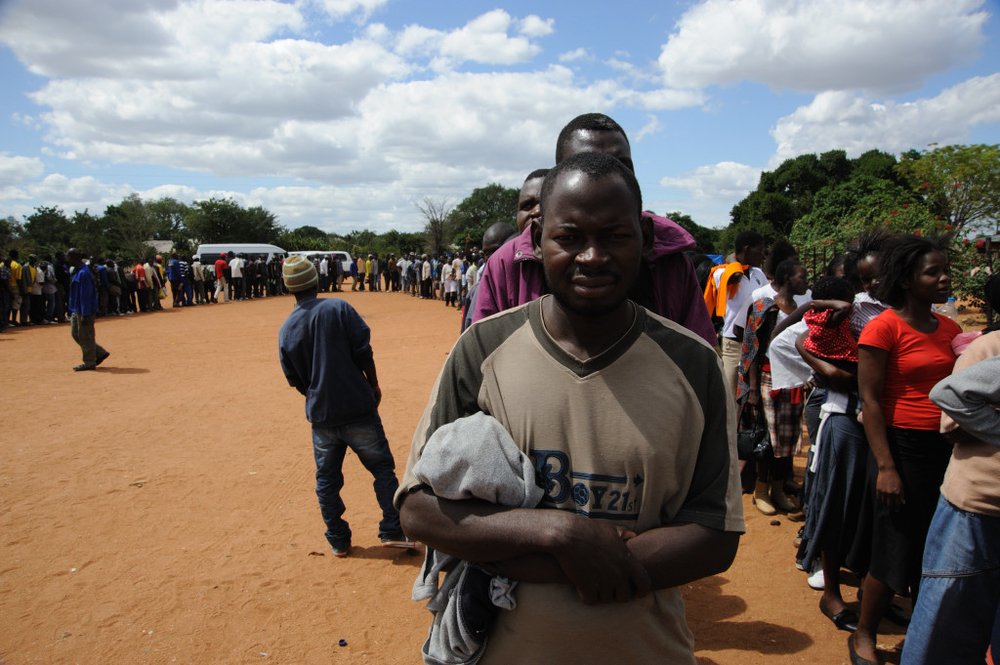BY ANDREW MAMBONDIYANI
A decade ago, Lloyd Gweshengwe migrated to Zimbabwe’s Eastern Highlands, lured by the region’s abundant rainfall, fertile soils and good grazing land for his livestock.
In the low-lying, parched areas of Gutaurare area in Manicaland province, where Gweshengwe used to live, rain-fed agriculture was longer sustainable.
Recurring droughts would frequently wiped out crops, while clean water sources would dry up.
At first, Gweshengwe was happy with his new life in the Eastern Highlands, where a more prolonged rainy season compared with other parts of the country favours various agricultural activities, including livestock farming and growing orchard and plantation crops.
“I had very good maize harvests here in the past years,” said Gweshengwe, a widowed father of two.
“I have been able to feed my family and sell the surplus food,” added the 38-year-old, one of the more than 20,000 people attracted to the rich highlands from other drier parts of the country during the past decade due to the effects of climate change.
But the dreams of a better life have been slowly turning into another nightmare for Gweshengwe and the other migrant farmers in the region amid increasingly frequent tropical storms and cyclones.
In 2019, Cyclone Idai pummelled the Eastern Highlands, killing more than 300 people, leaving thousands homeless and a trail of destruction.
Tropical Storm Chalane and Cyclone Eloise hit parts of the area in 2020 and 2021 respectively, also causing damage.
“Life here has been good but we are now experiencing cyclones and severe storms each rainy season,” said Gweshengwe.
“We’re losing our homes. We don’t know what is happening; we don’t know what to do.”
Gweshengwe’s homestead in the Buwesunike area is perched on the steep slopes of a mountain overlooking a deep valley and a perennial river.
His small, asbestos-roofed house and a grass-thatched hut stand precariously on the edges of the mountain, exposed to floods, mudslides and landslides.
Thousands of such crudely built dwellings dot parts of the steep sides of the Eastern Highlands, which stretch for about 320km along Zimbabwe’s eastern border with Mozambique.
With the next rainy season approaching in November, Gweshengwe frets about the possibility of severe weather.
“We don’t know what the new season holds but the future does not look good for us,” he said.
Gweshengwe’s fears were shared by Simon Chanakira, who also moved to the Eastern Highlands from Chitora, a drier area to the west.
“We’ve yet to recover from the 2019 Cyclone Idai but there are chances of more cyclones in the coming rainy seasons,” said Chanakira, a 39-year-old father of two, adding that the storms have left huge gullies in the area which have affected their small farms.
“Farming area is increasingly becoming smaller in our area. But I cannot return to my place of origin,” he added.
“We hope that the government could assist us by repairing our roads which were damaged by the cyclone.”
While the Zimbabwean government has repaired major roads in some storm-affected areas and assisted those considered “legal settlers”, including by building new houses, it has long maintained that the migrants are “illegal settlers” occupying state land.
On many occasions, senior government officials have threatened to evict them from their new settlements, but no action has been taken yet.
According to the International Organisation for Migration (IOM), the lack of an accepted definition of an environmental refugee means that, unless people are relocated by extreme weather events, their displacement does not trigger any access to financial grants, food aid, tools, shelter, schools or clinics.
Charity Migwi, Africa regional campaigner for 350Africa.org, said storms in 2019 afected more than two million people in Zimbabwe and Mozambique, some of whom had to migrate to different regions.
“Yet, the two countries continue with fossil fuel exploration pursuits; coal mining in Zimbabwe and liquid natural gas exploration in Mozambique,” said Migwi.
Migwi noted that migration creates hostile living conditions among communities as they fight for limited resources available to make ends meet and called on governments, public development banks and other stakeholders to help communities to build resilience and adapt easily to the realities of climate change.
“This process may involve projects such as harvesting rainwater to enable irrigation during dry seasons, planting trees, providing drought-resistant crops and building requisite infrastructure to prevent excessive flooding,” she said.
These measures, she added, would ensure that people can continue growing crops, even with limited rainfall and have to worry less about their homes being flooded, hence reducing the number of climate migrants and overcrowded cities and towns.
Back in Buwesunike, a dejected Gweshengwe remained defiant despite the increasing risks from violent storms.
“I would rather die here from a cyclone than return where I came from and slowly die from starvation,” said Gweshengwe with a chuckle, as he lit a hand-rolled tobacco cigarette. – Al Jazera


 Slider3 years ago
Slider3 years ago
 National4 years ago
National4 years ago
 Tourism and Environment4 years ago
Tourism and Environment4 years ago
 Special reports4 years ago
Special reports4 years ago
 Opinion4 years ago
Opinion4 years ago
 National4 years ago
National4 years ago
 National3 years ago
National3 years ago
 National3 years ago
National3 years ago


